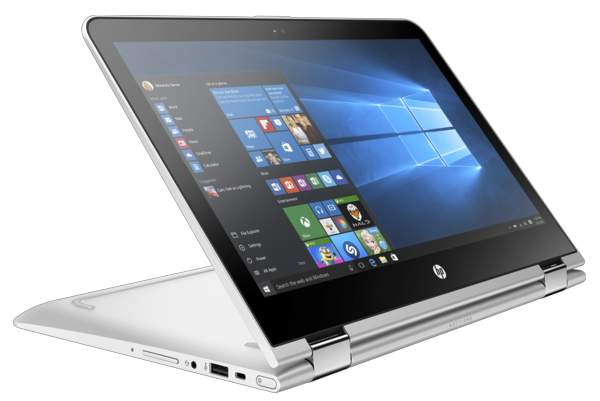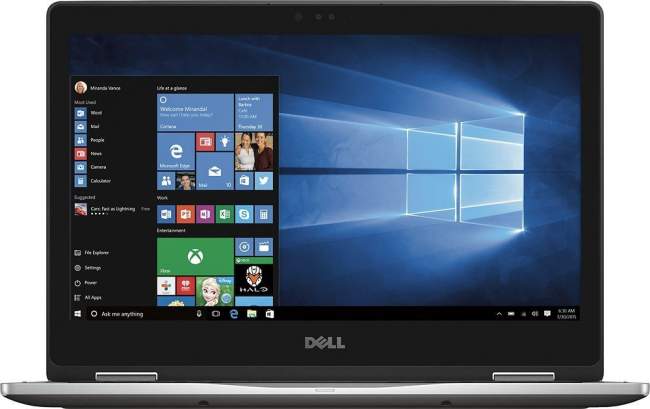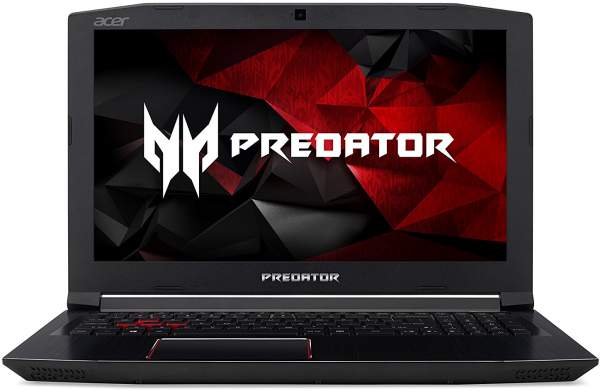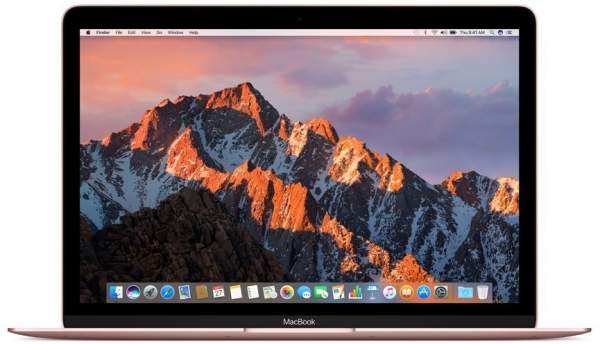August 2017 update. I’ll go in-depth on what type of laptop you should be looking for and at the end, I’ll give a few of top-notch suggestions that I’d pick if I’d be buying a laptop today.
Without further ado, let’s dive in.
So what are we looking for?
Major requirement Powerful processor
As a computer science student, you’ll probably have to code in several languages:
- Java
- Some scripting language (PHP/Python/Ruby)
- Some functional/logic language (Prolog/Haskell)
- Likely some C/C++/Objective-C
In all of these cases, your laptop performance will not limit the execution of your code. Yes, it might take a second longer to compile or 5 seconds longer to start a Java server but that’s not a good enough reason to stretch your budget for a better processor.
Even though a basic mid-range 2 core processor should suffice when compiling your code. So why am I edging you towards a fast processor? There’s one important reason on why you should aim for a higher-end CPU if possible. Responsive and snappy workflow actually makes you a better and a happier programmer.
Get this, your code will crash or work improperly 100s of times a day and when you consider that your PC is taking 5 extra seconds every time, you are on a verge of experiencing some major nerd rage. On a more serious note, I’m generally very happy that my if a program I’ve written doesn’t work – I don’t need to wait long to know it, fix it and go at it again.
Which processors do I have in mind? Right now, you’ll see these processors most often:
| Low-end | i3-7100U, i5-5200U, i5-6200U, i5-7200U | 500$ – 700$ |
| Lower mid-range | i7-6200U, i7-7500U, i5-6300HQ | 700$ – 900$ |
| Upper mid-Range | i5-7200U, i5-7300HQ, i7-7700HQ | 850$+ |
| High-end | i7-4900MQ, i7-6820HK | 1600$+ |
P.S. Do not forget that by getting a faster processor you’re also chipping away at your battery runtime! That’s why I am OK with a low-end/mid-range processors on smaller laptops that are used primarily for lectures and coding on the go.
Major requirement Suitable amount of RAM
Right now I’m using 11 GB out of the 12 GB installed on my laptop. I’m sure I’ll have to update it to 16 GB in the near future due to my work habits. I like to keep most of my stack open.
At this very moment I’m running:
- Netbeans
- Sublime Text
- Atom
- Apache server
- Java Tomcat server
- 2 Ruby processes (Sass compilers)
- Git Bash
- MySQL database
- MongoDB database
- Photoshop
- 20 tabs on Chrome (15 permanently pinned)
- Spotify
- f.lux
- Task manager and CPU/GPU temperature monitor
I do not multitask, but I have to switch my work context several times a day between various tasks:
- audio/images/3D courseworks with Java
- Haskell worksheets
- working with other students on an assest web app (using Java Spring framework)
- work with several projects for my freelance clients (PHP and Node.js)
If that resembles the way you like to work – I heavily recommend getting at least 12 GB of RAM or more. But if you rarely go above 10 tabs on Chrome and your budget is under $900, it’s not necessary to go above 8 GB.
Minor requirement Solid State Drive
Affordable SSDs are the best thing to happen to computers in the past 5 years. They’re a lot faster, lighter, more reliable and they end up consuming less power. Their price is still the main (if not the only) reason why we have to cling on the spinning hard drives.
If you can spend over a $1000 for a laptop for your computer science course, having an SSD for your system partition is basically mandatory. And if you’re around $1500 mark, having a large SSD-only storage would be the best.
Right now I’m rocking with 250 GB SSD for my system and applications and 750 GB HDD to store my downloads, images, archives etc. I think you should have at least 500 GB (and ideally 1000 GB) of storage with a minimal 250 GB for an SSD.
For me, as a computer science student, it speeds up my workflow quite a bit, especially when I’m in need to do a search through my files for a particular piece of code. It also tremendously speeds up my work on heavyweight IDEs like Eclipse and NetBeans.
Minor requirementLinux Compatibility
Unless you’re buying a MacBook (which is a viable option), you’ll need a laptop that runs some Linux distro: Ubuntu, Mint, Arch, Debian and so on. Though, this is not a big problem in most cases. Most laptops work either flawlessly or with some trackpad/indicator LED issues that often can be solved with an all-nighter and a cup of coffee. Of course, applying a patch to the kernel is not what I recommend for someone who hasn’t yet learned how to code.
Most people still come from Windows environment and you might want to have a dual-boot setup. In that case, I recommend getting a laptop with 500 GB SSD storage or at least 250GB + 1TB.
Minor requirement Long Battery Runtime
Long battery time can be amazing: it allows to quickly start and end my work sessions – whether it’s in my home, university computer labs or some coffee shop on campus. Best batteries can offer enough juice for the whole day in the uni. What is more, ability to finally ditch that big black block charger makes taking a laptop a seamless task. I have seen how these types of inconveniences discourage many students from taking their laptops altogether.
For example, in our course, quite often you can bring your own laptop and try out the code samples in the middle of the lecture as the lecturer demonstrates them from his own laptop.
In practice, ~5% of students did that in our course. I am absolutely certain that more of them would if everyone had a lightweight laptop with a heavyweight battery. I’d see only lightweight, ultrabook-type laptops in the lectures and a lot more of heavy brick-type laptops when we HAD (or were heavily encouraged) to bring our laptops for various collaborative projects.
Having an easy-to-carry laptop comes in handy when making project presentations, meeting with coursework teammates outside computer labs etc.
Now we’re on the same page. But what does “long battery runtime” actually means? Where should I look and how should I judge it?
As a best case scenario, you should look at independent tests of battery life while browsing the internet over Wi-Fi. They still tend to overshoot the actual battery time as they tend to run at 10%-30% screen brightness. Usually, you’ll be using 40%-80% (or even 100% on sunny days). Also, test results of brand new laptops are as good as they’ll ever be. Even in a couple of months, your battery can start to perform worse than it did out-of-the-box (mine sure did).
Here’s a quick cheat-sheet for reading battery times and how to roughly convert them to “realistic” battery runtime.
| Test | Result | Real-life result | Judgment |
| Manufacturers “sticker spec” | 6h | 4h 30min | Average (bad for a small laptop) |
| 3rd party Wi-Fi benchmark | 3h | 2h 30min | Bad |
| 3rd party Wi-Fi benchmark | 7h 40min | 6h 50min | OK/Above average |
| 3rd party Wi-Fi benchmark | 11h 20min | 10h | Great |
Major optional requirement Lightweight
Having a light laptop goes hand-in-hand with a long battery life. I recommend looking for a light laptop especially if you see yourself spending a lot of time on campus between lectures.
At the same time, having a light laptop is not all sunshine and rainbows – most people tend to overlook this.
Small and lightweight laptops usually suffer from restrictive airflow which makes them problematic to clean (which should be done after ~2 years after their purchase) and difficult to upgrade. Unibody laptops suffer from this the most. They have few if any slots for upgrades and, when opened, are just as easy to navigate as minified javascript. Kappa.
Minor optional requirementDedicated graphics card
If you are a PC gamer and you can’t wait to get your hands on all the newest gaming titles – you’ll need to look at graphics cards like GTX 1060M, 1070M, 1080M. For a casual gamer Nvidia GTX 960M, 970M, 1050M chips will work just as well. As for the amount of dedicated memory – 2 GB is enough for 960M and 1060M (and up) can benefit from 4 GB or more if you want to use Very High/Ultra textures in games.
If you’re willing to make compromises, even 960M can be enough for latest games, if you play on low/medium settings on 1440×900/1600×900 resolution. Under these restrictions, it is easy enough for all casual games, most competitive titles and many 2016-2017 releases.
But if you want the best laptop graphics card that the Glorious PC master race can offer – 1080M is your only good option. Yes, you could go crazy and look at the laptops that use desktop CPU/GPUs but then you’re reading the wrong article, mate. In that case, you’re looking for a gaming rig.
Laptop suggestions for computer science students
I’ve compared over 155 laptops to select 4 best laptops for computer science course that satisfy the requirements above or, at least, make very reasonable compromises based on their price.
HP X360

Entry-level laptop that is suited for mediocre computer science tasks which are not resource-heavy. Price for such specs is nice, as the laptop comes with features that many laptops with higher price tags don’t have.
| Major | Processor | Check. Kind of. Intel Core i5-7200U is the latest generation mid-range mobile processor which is enough for most tasks. |
| Major | Memory | 8 GB? Minimum amount of RAM installed for such price is a great offer, but expanding RAM capacity would be a hassle, since you need to disassemble the motherboard itself in order to install RAM. |
| Minor | Solid State Drive | No SSD can be a drawback for some, however there’s always an option to replace HDD with SSD. |
| Minor | Battery Runtime | OK. 5h 20min – not great, but considering other specs and other similar laptops it’s nothing to scoff at. |
| Optional | Lightweight | Average. 4.6 lbs/2.1 kg is around average for 15.6″ laptops. |
| Optional | Dedicated graphics card | Nope. So, forget the latest releases. You still should be able to play some older games without a problem (with low/medium graphics settings). |
Dell Inspiron 7000

If you’re a fan of 13-inch 2-in-1 laptops, this one is a really good option.
| Major | Processor | Due to the size, laptop comes with 2 core processor, however it is one of the recent 7th generation releases, so the performance will be astounding even when working on complex projects. |
| Major | Memory | 12 GB. Is just enough for heavy multitasking. |
| Minor | Solid State Drive | There’s only one PCIe port, so utilizing cloud-storing services such as Goodle Drive and Dropbox may become handy in the future. |
| Minor | Battery Runtime | For a 13.3″ laptop, the battery life is subpar, however 5 hours is still decent whenever travelling, especially in 21st century when there are many plugs in public transport. |
| Optional | Lightweight | 3.5 lbs / 1.6kg is perfect weight if you live a life of moving a lot from X to Y. Sacrifing a bit of the performance for such comfort is always worth it. |
| Optional | Backlit Keyboard | Laptop comes with a backlit keyboard that allows you to work on your nightly work without making any typos or slowing down the typing speed. |
Acer Predator Helios 300

Acer Predator is a great desktop-replacement laptop. It comes with high-performant CPU and GPU while retaining great battery life. Great choice for people who wants to have it all!
| Major | Processor | I told ya! 7700HQs are everywhere! So, yes, the processor is good for any type of work. Right now I have a similar processor and I never find an opportunity to complain about it. |
| Major | Memory | 16 GB. |
| Minor | Solid State Drive | It is a weird mix of decent and good. The laptop itself comes with a 256 GB SSD which is just enough for storing Windows (or more realistically – Linux) and important project files, software on it to have high performance. However, there’s no HDD installed… yet… You get an SSHD 2 TB Firecuda that you have to install it by yourself which is odd, but once that hassle is done, you’ll have 2.25 TB of speedy storage. |
| Minor | Battery Runtime | One of the few laptops that has great performance while maintaining high battery lifetime. |
| Optional | Lightweight | Heavy for its size (5.5 lbs/2.5 kg), but keep in mind it is a portable desktop-replacement! |
| Optional | Dedicated graphics card | Nvidia Geforce GTX 1060M is a great graphics card for all gamers. It’s enough to play games on highest settings. |
Apple MacBook 12

MacBook that is more than sufficient to run any Computer Science tasks without a hassle. It comes with a spacious SSD storage and decent specifications for a 12″ display. Macbook fans won’t be disappointed in the portability and performance of this laptop.
| Major | Processor | 2 Core Processor itself runs at a slow frequency (1.2 GHz), however whenever there’s a need for more power, automatically the processor will turbo the frequency up to 3.1 GHz which helps to remain stable workspace without any stuttering. |
| Major | Memory | 8 GB of RAM is slightly below minimum (12 GB). |
| Minor | Solid State Drive | Spacious storage of 512 GB SSD will greatly increase the performance of the OS X and file transferring. |
| Minor | Battery Runtime | One of the few laptops that has great performance while maintaining high battery lifetime. |
| Optional | Lightweight | Light laptop design (3.4 lbs/1.5 kg). |
Table of Best Laptops for Computer Science students
| Laptop | Price (approx) |
| HP X360 | $500 |
| Dell Inspiron 7000 | $850 |
| Acer Predator Helios 300 | $1050 |
| Apple MacBook 12 | $1,570 |
Finally, don’t stress out about your laptop – just make sure it intuitively matches your the way you’re planning to use it – if you’re always on the go, don’t buy a 17″ powerhouse. And if you need a gaming rig squeezed into a laptop body – don’t think about 13″-14″ laptops. Well… unless you want to spend a mini-fortune on a Razer laptop.

This is a great amount of detail, thanks. I’m planning about going into a computer science major this year and have been looking for a laptop. You’re explanation of everything really does help. I just wanted to say thank you and good job.
Thank you :)
Thanks for this very helpful blogpost!
I am considering getting a Y700 but there is another laptop called a Lenovo Ideapad 700 which seems to have the same specifications for around $200 less. I can’t seem to find much online about what the actual difference between these computers is. I was hoping you might know the difference between these and if there are any important features/specs I would be losing by going with the cheaper laptop.
I would need to know which models you’re talking about exactly, as there are plenty of variations of Y700 and Ideapad 700. But in general, if you compare 2 models with the same specs – Y700 is gaming-oriented (better speakers, backlit keyboard and a bit better cooling system) while Ideapad 700 is a more general use laptop. If you’re not a gamer or you don’t care about the bells and whistles that come with Y700, there’s no reason to pass Ideapad 700 as it’s a good deal.
Have you looked at any of the Lenovo ThinkPads? I am currently leaning toward one of these for my CS laptop. I can see how gaming can be a bit more of an expensive task with these but they meet the biggest requirements laid out here. X, T and P series’ especially.
Yes, I have.
Thinkpad X laptops used to be very popular for their exemplary Linux support. But for the most part, they (and T series to some extent) are a bit more expensive compared to similar laptops from other brands.
Thinkpad P might be a bit too much for a computer science student (or at least it is not within most students budget). But if you can spend a bit extra on a workstation, then yes you can go for Thinkpad P. I usually recommend them for graduates/professionals.
Overall, you brought up a good point. I’ll revise the recommendation list and check if there’s room for Lenovo models, especially X and T series.
I’m aware that Thinkpad P series workstations will be overkill for me currently? But laptops can last more than 4 years? Will buying a p40 yoga, p50 or even p70 better prepare me for the future? (I don’t like trying new things, I’m switching to a new one only because the old one is unfixable or too expensive to fix, so I want something that can last about 6 years at least, maybe 10 years?)
What would you recommend for a data science student? I am looking to stay around 800.00
Great advice on all the specs! Ive got a question though. I only have enough money for either a 256GB SSD/16GB RAM or a 512GB SSD/8GB RAM. I already have a external HDD to that stores all my media. The processors for both variants are somewhat the same. the 512GB variant as a .2GHz higher clockspeed. The internet is saying to get the 16GB RAM variant, but I’m afraid i wouldn’t utilise the 16GB at all. Cheers and keep up the good work!
It all depends if you’ll be able to upgrade RAM in the future.
If you can upgrade it down the road – you’re a lot better off going for 512GB.
If you’ll be stuck with RAM forever – go for 16GB RAM.
Hi am samuel an upcoming computer scientist am studying computer science in school, I would like to get in contact with you so that you could be my instructor and help me over some things….plsss…..
thank you its good explanation!
Thanks for all the details! Nice one dude! But I am wondering whether MacBook is in your consideration?
I’m finishing up my second year also, this may because I currently attend a local community college but I have gotten by quite well on a core i3 – 5015U and 8gb of ram with an ssd. Granted the amount of code I write is minimal and the classes have not been challengeing enough for me to recompile more than 20 times in a day.
My Biggest Recommendation is:
Buy a laptop with a very fast processor and with a good instructional guide for upgrades. Ram and SSD’s are usually replaceable on cheaper laptops if you are willing to pry open the case, this will save alot of money and allow you to get top of the line specs (16gb ram, 250gb ssd etc for about 220 more) for mid tier prices. I just did a ssd upgrade with 8gb of ram and now this laptop is pretty fast, even with a core i3-5015U
You forgot the most important criterion: operating system. In a professional environment, if you are programming C#, or maybe Java, you’re likely using a Windows machine. Otherwise, you’re using a Mac. There are always exceptions, but this is generally the case.
Why a developer writing non-.NET code would want a Windows machine is beyond me. Windows is the most dev-unfriendly of the major OS’s, and it’s not even close. Most devs I know use a MacBook at work, and many of them use a linux machine at home.
Can anyone give one compelling reason to use anything other than Mac or Linux unless you’re writing .NET-based code?
was considering to acquire hp folio 9470 or hp 15 laptops for my CS major,what do you think about it?
I appreciate your writing this helpful article and it is so good that some people try to share their experiences with other students who are going to start or have just started their uni courses.
As a computer science student I think you can add one more thing which is the display quality. As we gaze a long time at the laptop screen, investing in a good screen would be worth it. Screens like the antiglare ones on the IPS panels with wide viewing angles.
Hello, I am going to start my undergraduate study in cse department . I want to buy a laptop of hp brand. I want to buy hp PAVILION 15-CC756TX ,
2.50-3.10GHz ,8GB, 1TB, 15.6″ ,FHD Display, 4GB, Nvidia940MX, up to 4 Hrs. I have not so much knowledge about it. But this article help me . But I am confused if this model is appropiate for me. So please please help me as early as possible. I will be very greatful.
out of the 4laptops u mentiond,which is d best?.u pick for me.
Hi there, I’m interested in Huawei Matebook X, may I know is it suitable for Computer Science student? What’s your advice? Huawei Matebook X and Huawei Matebook D, which is more suitable? Thank you in advance! Looking forward for your reply😃
Would you recommend a Dell XPS 13? I will be an incoming freshman this fall.
I am thinking of buying below configurations laptop
2017 Dell Inspiron 15.6″ HD Truelife LED-Backlit High Performance Laptop PC, Intel Core i7-7500U 2.7GHz, 8GB DDR4, 512GB SSD, DVD, HDMI, Bluetooth, WIFI, Webcam, Windows 10 Professional. Let me know if this fine for my Masters in computer science course. Also how will i come to know if i can attach external dirve so that i will have storage for my work files
Can u tell me what is best a desktop or a laptop for a beginner cs student..
And that too under 40k